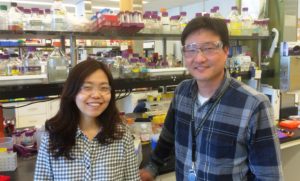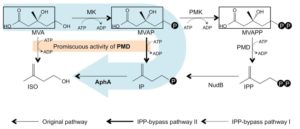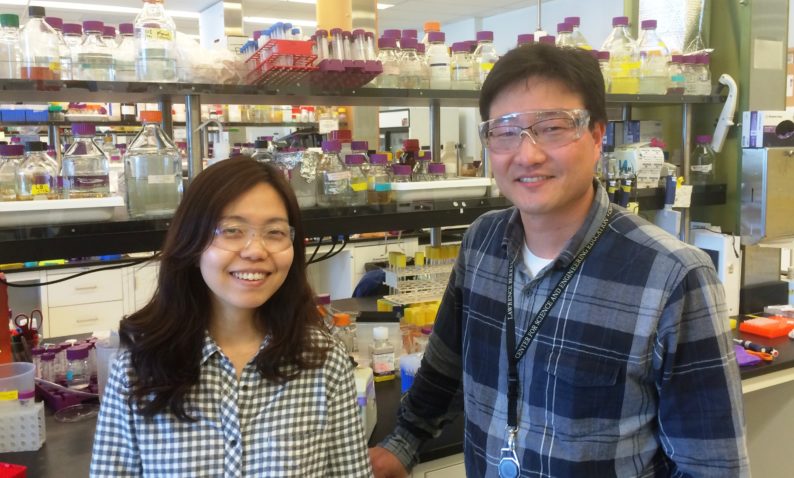-By Irina Silva
New Biosynthesis Pathways for Five-Carbon Alcohol from Mevalonate Are Available For Licensing
Researchers at the U.S. Department of Energy (DOE)’s Joint BioEnergy Institute (JBEI) have developed two novel biosynthesis pathways for five-carbon alcohol (isopentenol or 3-methyl-3-buten-1-ol) from mevalonate that reduce the energy demand and cost of earlier applications of the mevalonate pathway by using genetically engineered host cells, whose culturing stage can happen both in anaerobic or aerobic conditions. This invention can be used in an industrial scale, even under oxygen-limited conditions. These modified pathways would be a good platform for industrial production of isopentenol which is a potential gasoline alternative and a precursor of commodity chemicals such as isoprene.

The findings were reported in a paper entitled “Isopentenyl diphosphate (IPP)-bypass mevalonate pathways for isopentenol production” published in Metabolic Engineering early this year. Taek Soon Lee is the corresponding author on this paper and co-authors are Aram Kang, Kevin W. George, George Wang, Edward Baidoo and Jay D. Keasling.
“The original pathway uses 3 ATPs to produce isopentenol and is also involved in the formation of toxic intermediate (IPP), which are potential drawbacks of applying this pathway for large scale fermentation,” says Lee, JBEI’s Director of Metabolic Engineering and Deputy Vice President of the Fuels Synthesis Division. “Our new pathways save energy requirement and also bypass the formation of toxic intermediate.”

The new pathways are designed based on a promiscuous activity of one pathway enzyme (phosphomevalonate decarboxylase, PMD), and saved the number of steps for the biofuel production as well as ATP demands. Lee’s team demonstrated that one of these new pathways can perform more efficiently in oxygen limited fermentation condition over the original pathway, and this new pathway would relieve the need of aeration during fermentation process and lower the operational cost in industrial scale production.
The technology is now available for licensing or collaborative research. For more information, including a link to the Licensing Interest Form, please visit this page.
